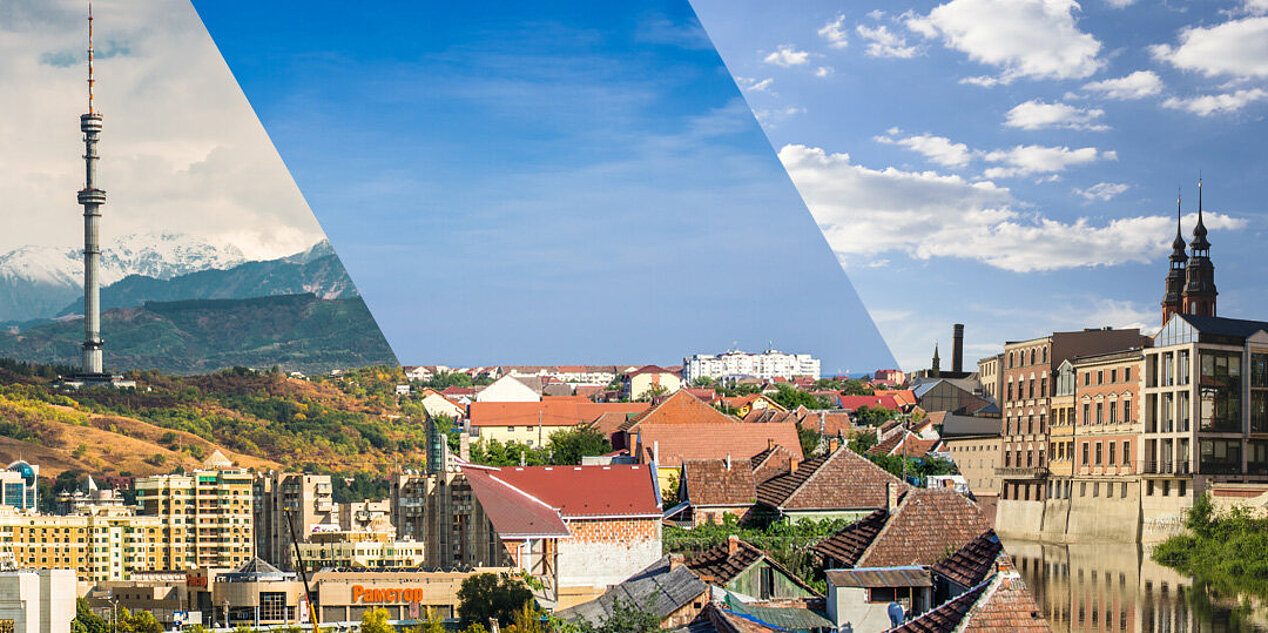The Russian-German Landscape
Julia Boxler in Almaty, Kazakhstan
From 2015 until 2017, Kazakh-German Julia Boxler was an ifa editor at the newspaper 'Deutsche Allgemeine Zeitung' in Kazakhstan. In the interview with ifa, she talks about this time, involving a rediscovered 'old home country', the question about origin and identities, new perspectives and friendships.
From Youth Culture to Viticulture
Josef Sporrer in Satu Mare, Romania
Until 2003, Josef Sporrer was a cultural assistant for ifa at the German Forum in Romania. He liked the country so much that he decided to stay and started growing wine on the border to Ukraine. In the interview he talks about his experiences with the German-speaking minority and what he loves about Romania.
ifa as a Stepping Stone into Berlin Politics
Karolina Slusarenka in Opole, Poland
In an interview, Karolina Slusarenka, former coordinator of ifa's Deployment Programme in Poland and the Czech Republic, talks about identity as an important component of her work with the German minority in Poland.
About the Deployment Programme
ifa's Deployment Programme offers organisations of German minorities support in tasks. Work stays in Central, Eastern and Southeastern Europe and/or in a state of the Commonwealth of Independent States last between one and five years. ifa cultural managers and editors work on selected projects at the selected organisations and support them with their know-how. The aim of the Deployment Programme is to convey a modern and vibrant image of Germany and to strengthen local organisations in their cultural bridging function between minority and majority.

